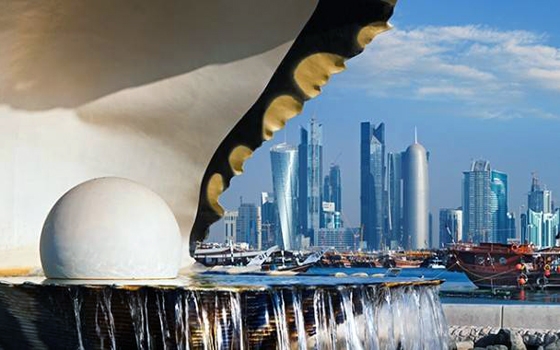As momentum gathers around Qatar's infrastructure preparations related to the FIFA World Cup in 2022, construction and real estate-related investments remain strong, according to a senior Qatar Financial Centre (QFC) official.
Deputy CEO, Yousuf Mohamed al-Jaida, told Gulf Times at the Back2Business (B2B) Networking 2014 held at the Marriott Marquis: “Based on economic reports, investments remain strong in the construction and real estate sector to fulfil the goals set by the government as Qatar is set to host the FIFA World Cup in 2022.”
In preparation for the 2022 FIFA World Cup, al-Jaida said the government was focused on delivering multi-billion projects such as the $45bn real estate project in Lusail City, the $36bn Integrated Rail Project, the $7.4bn New Doha Port, final phase of the $17.5bn Hamad International Airport, the $8.1bn highway program and other World Cup stadiums worth $4bn, among others.
This demand for infrastructure land is one of the main factors pushing real estate prices upwards.
He also observed that World Cup-related construction work contributed to Qatar's population growth, as many construction companies were hiring more workers.
As of August 2014, Qatar's total population stood at 2.077mn, showing an 8.2% increase compared to the previous month, according to data from the Ministry of Development Planning and Statistics.
“If we continue to grow at this pace, definitely real estate prices will likewise increase, especially with new cities being developed,” al-Jaida pointed out and added a 20% surge in real estate prices worldwide.
“There's growth all over the globe. It's not just Qatar, it's a phenomenon. Real estate prices are picking up all over the globe such as in countries like Dubai, the UK, and in the US.”
He cautioned that if estate costs keep rising then the roll-on effect will be an increase in the cost of contracting, cost of rent, and high prices in residential and commercial real estate properties.
But al-Jaida said Qatar was prepared to counter the phenomenon as the government “will try to maintain inflation costs that are congruent with the real estate boom”.
Earlier, QNB reported that the country's fast-growing economy and rapid population growth caused land prices to escalate, leading to higher rent inflation.
Citing data from the Ministry of Justice, QNB said land prices had increased 52.7% since the beginning of 2014, which led to a rise in rent inflation to 7.9% in August this year.
The QNB report added that rising rent inflation is leading to a moderate acceleration in domestic inflation but is countered by lower international food prices, which are keeping foreign inflation down.
Construction Week
7 October
























































